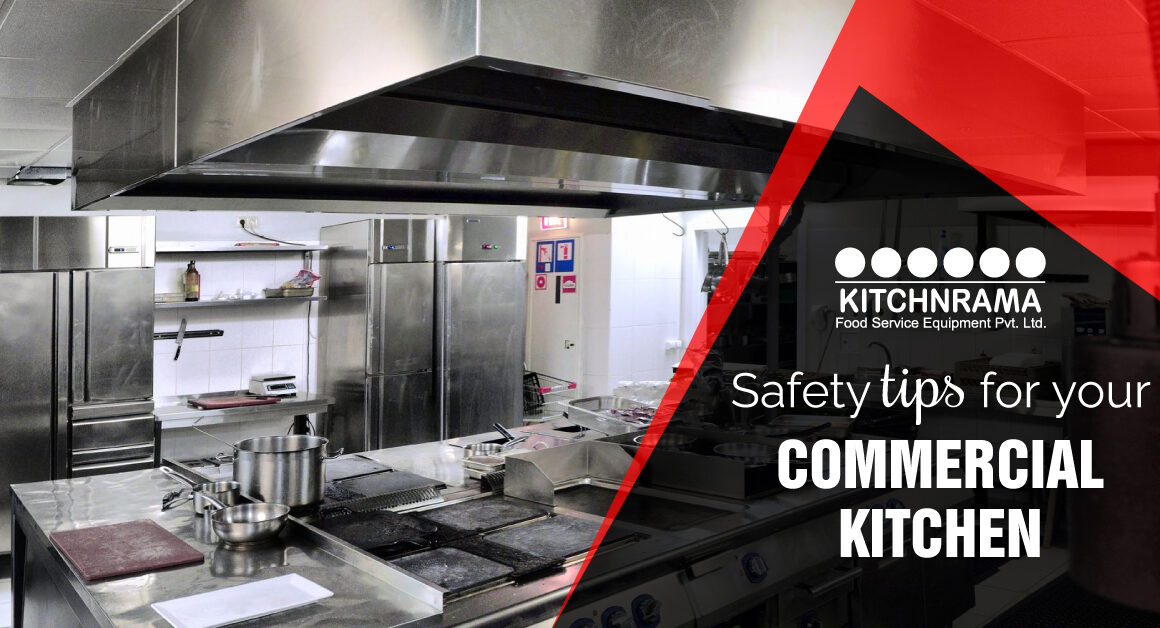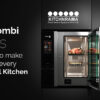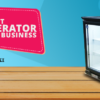Safety Tips for Your Commercial Kitchen

Does your company have a hard time attracting and retaining high-quality workers? As a result, there are many others like you out there! Labor issues have hampered the food service industry.
The last thing you want to do is scare away potential employees from working in your commercial kitchen. If your staff sees your kitchen as a potential disaster, that could happen.
Is Working in the Kitchen Scary?
Intense heat, heated liquids, high shelves, open flames, cramped quarters, and a fast-paced environment are all part of the cooking experience. Your commercial kitchen sounds precisely like this. It takes a lot of effort to make a kitchen packed with these hazards safer. Here are some safety measures you can put in place to make sure your commercial food service business is a safe place to work:
Proper attire is required
You don’t need kitchen uniforms, but baggy pants are not an option! As much skin as possible should be covered by clothing. Shoes with non-slip soles and a closed-toe design are essential.
Develop practical communication skills among your staff
Your workers in a crowded kitchen can collide if they don’t communicate well. A simple ‘behind’ can frequently be enough to keep a car from colliding. When one or both employees carry a knife or a pot of boiling soup, the dangers of a collision increase significantly.
Non-slip mats should be provided
Because they move so quickly, construction workers risk tripping and falling on a slick or damp floor. Slip-resistant mats should be installed in all high-traffic areas to help workers stay safe. Trips, slips, and falls were the cause of death for 849 workers in 2016, according to the Bureau of Labor Statistics.
Protect the equipment by installing safety shields
If you’re rushing around, it’s easy to forget basic safety precautions. A long-term injury can be avoided with the use of equipment guards.
Make sure there’s enough airflow
An overly hot and smoky kitchen can rapidly lead to discomfort and even injury. Having a worker collapse on the flat top due to heat exhaustion is the last thing you need. Chronic respiratory issues might be exacerbated by inhaling smokey air all day.
Make an effort to understand the issues of your workers
After all, they’re the ones most likely to discover any threats that may be lurking. Waiting for someone to get injured because of a shelf crack is a bad idea. Fix it now. To keep your employees safe, encourage them to report any hazards, and you’ll also raise morale and offer them a reason to stay with your company.
Make quick work of wiping up liquid spills and shattered glass
All spills should be cleaned up immediately, wet areas should have visible warning signs, and employees should be aware of the need to exercise caution when a spill or breaking has occurred. The only way to deal with shattered glass or dinnerware is to use a broom and a dustpan. By no means should this be done by hand!
Protect yourself from cuts and burns by following these guidelines
Cut-resistant gloves and non-slip cutting boards should be available, as should sharp blades, and cutting procedures should be taught to personnel. Replace worn-out or damaged oven mitts or potholders with fresh ones.
Stay away from any potential dangers that could be electrical
Electrical cords should be checked frequently for symptoms of wear and tear. As soon as you spot one, put the appliance out of commission until a new cord has been installed. Also, keep electrical appliances and cords away from liquids, and keep cords out of the way.
Maintain a regular schedule of fire drills
The kitchen is the most typical place where a fire begins, whether in a home or a business. In the event of a fire, you want your employees to be confident in their fire safety knowledge. You may help your local fire prevention officer achieve that confidence by scheduling a paid training day. Regular fire drills are an excellent way to reinforce what they learned during training.
Your commercial kitchen’s gas appliances should be inspected
Gas equipment that doesn’t work correctly or is outdated has caused several mishaps in commercial kitchens, including explosions and dangerous gas leaks.
Gas certificates, which cost between £30 and £150, can be obtained from a licensed Gas Safe Engineer who performs a safety check on your appliance every year. This suggestion puts the safety of your clients and your employees at the top of the priority list.
Workers are more inclined to join and stay on your team if they know you are doing everything you can to keep them safe. Morale is boosted by a caring kitchen manager and a well-maintained kitchen, which lowers the risk of injury. Everyone wins in that situation! Please visit our Kitchenrama page for more details.





